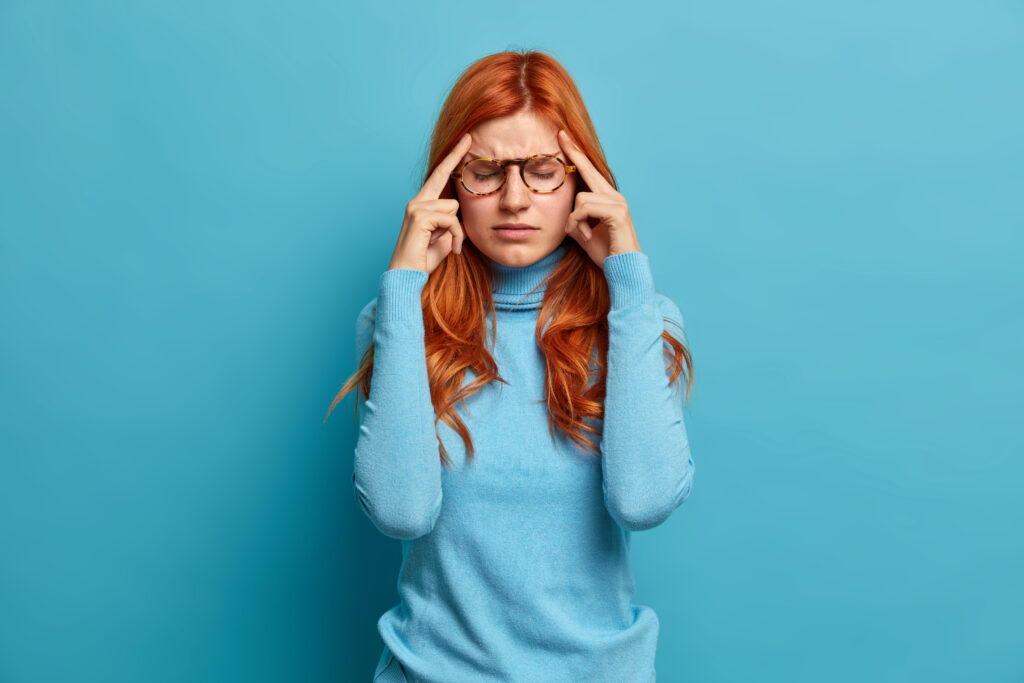
Acupuncture for headaches and migraine
Headaches are the most common health issue in the UK, with more than 10 million people regularly getting headaches. In extreme cases they are called migraines and often come with other symptoms such as seeing auras, nausea, vomiting and increases sensitivity to light and sound.
It’s estimated that globally, around 50% of adults have suffered a headache within the last year, of which 30% of those report experiencing migraine. Migraines are considered the third most common disease worldwide, with nearly 15% of people suffering. One in every 5 women, and one in every 15 men suffer with migraines.
Migraines are the 7th most disabling disease and the leading cause of disability among all neurological disorders. It is estimated that the UK population as a whole loses 25 million work or school days each year due to migraines. Severe migraine attacks are classified among the most disabling illnesses, comparable to dementia, quadriplegia and psychosis. As a result depression is 3 times as common in migraine sufferers. The causes are unclear but brain chemistry, genetics and hormones seem to play a role.
Headaches are categorised into the following categories by the World Health Organisation:
-
- Tension type headache
- Cluster headache
- Migraine
Current treatment for headaches is over the counter medication, which can work in some cases. Headaches also response quite well to dietary and lifestyle changes. Migraines, however, are harder to treat with conventional medication, especially as the causes are not fully understood. Current medications used are either analgesics, anti-convulsants, beta-blockers or anti-depressants. Whilst these can help, they do not always work. They can also have a variety of side-effects, including; lethargy, palpitations, nausea, diarrhea, difficulty concentrating, dizziness, depression, insomnia, hair loss, reduced libido and impotence.
Acupuncture, on the other hand, has no such risks associated with it and has been shown, in a range of studies, to be safe. It has also been shown to be beneficial for headaches and migraines. So much so that The National Institute of Clinical Excellence recommends it for both tension type headaches and migraine.
Perhaps the largest research into acupuncture for headaches and acupuncture for migraine was the York study, where a data-set of nearly 18,000 patients was amassed. In it they stated that, ‘Acupuncture was also found to be better than standard medical care for all of these chronic pain conditions. As well as the York study, the Cochrane Review states, ‘The available evidence suggests that a course of acupuncture consisting of at least six treatment sessions can be a valuable option for people with migraine.’
Acupuncture for headaches and migraine: the evidence
Research has shown that acupuncture can be effective in the treatment of headache and migraine by:
- Providing pain relief – by stimulating nerves located in muscles and other tissues, acupuncture leads to release of endorphins and changes the processing of pain in the brain and spinal cord (Zhao, 2008; Pomeranz, 2001)
- Reducing inflammation by promoting release of vascular and immunomodulatory factors (Kim, 2008; Kavoussi, 2007; Zijlstra, 2003)
- Reducing the degree of corticol spreading depression (an electrical wave in the brain associated with migraine) and plasma levels of calcitonin gene-related peptide and substance P (both implicated in the pathaphysiology of migraines (Shi, 2010)
- Modulating extracranial and intracranial blood flow (Park, 2009)
- Affecting serotonin levels in the brain (Zhong, 2007)
- Increasing micro-circulation, reducing swelling (Komori, 2009)
